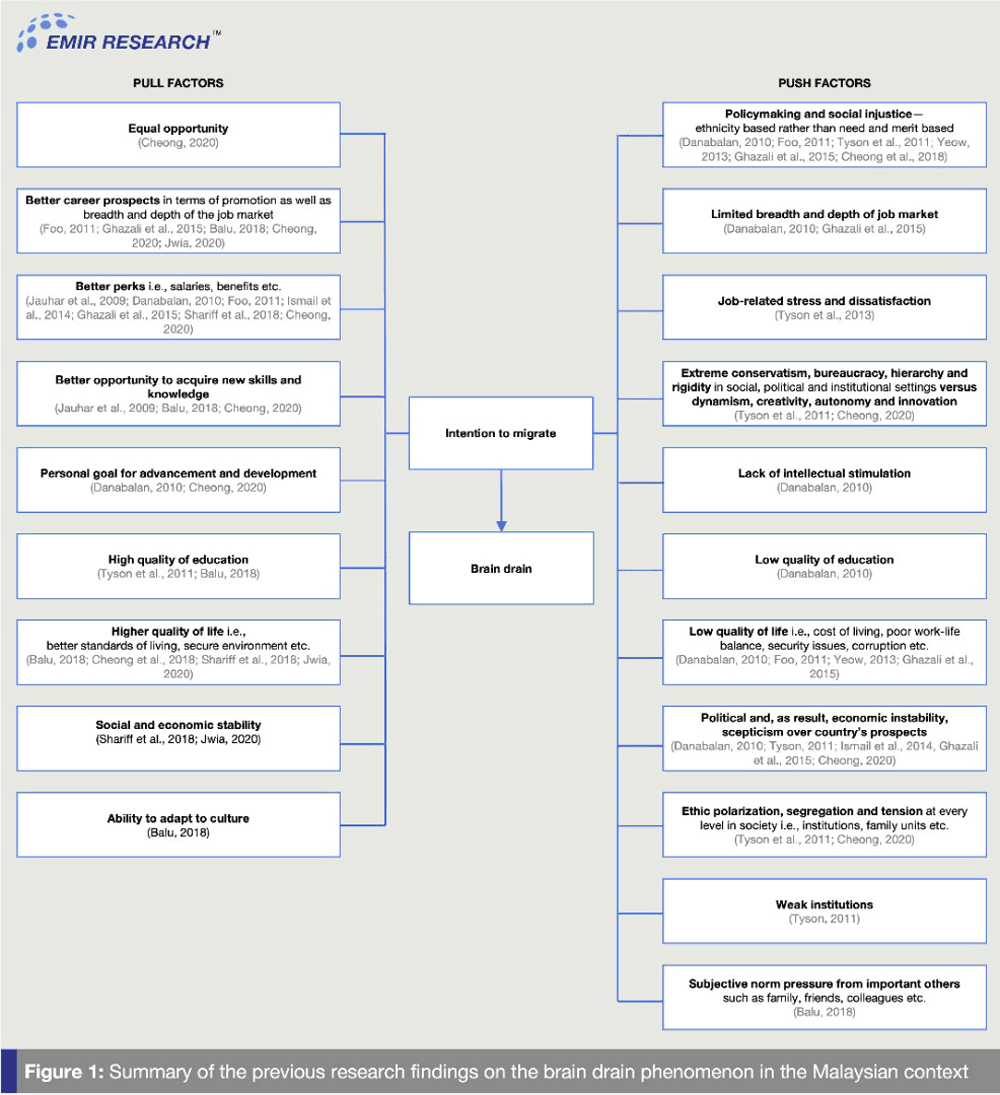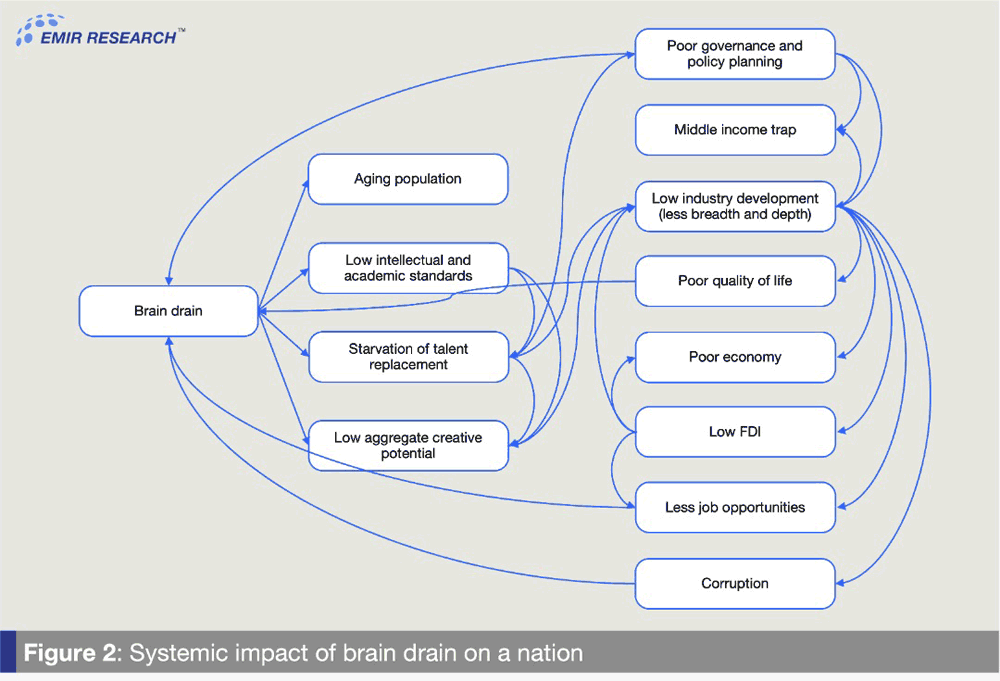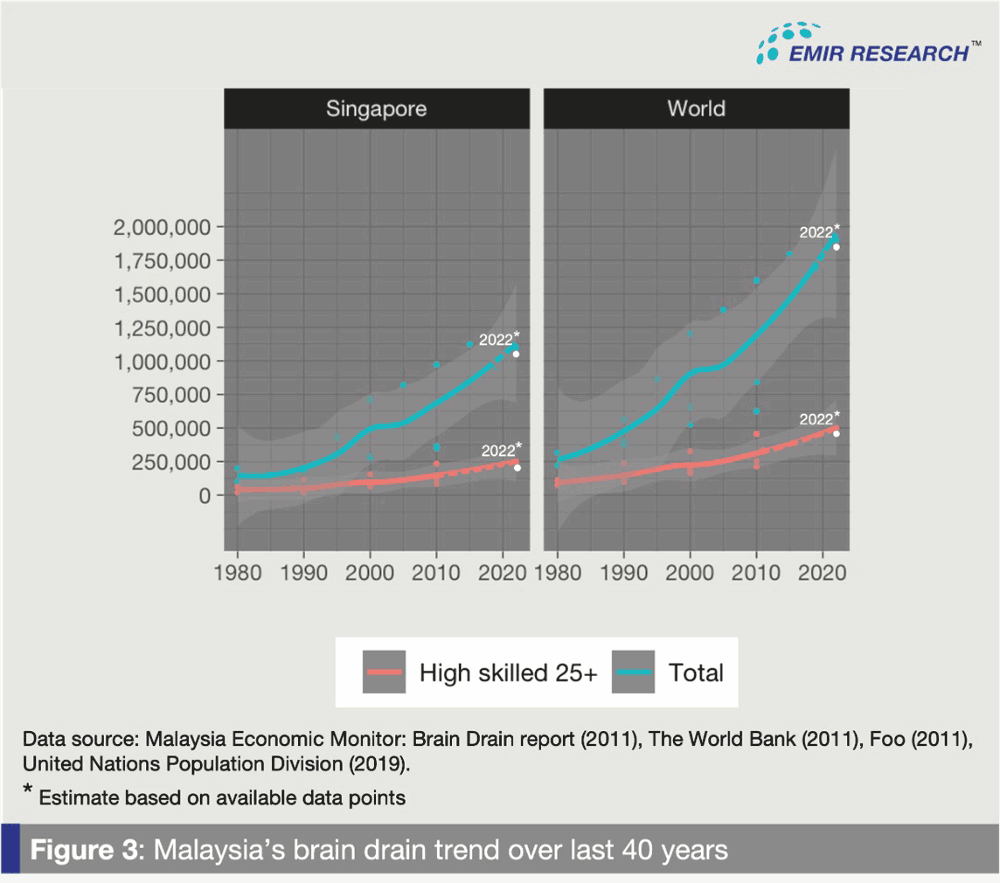The topic of brain drain has been increasingly becoming the talk of the town for Malaysians during the last few years.
However, mass media and researchers have been highlighting that this global phenomenon is very real for Malaysia since more than a decade ago. The policymakers were aware of this too.
Already a decade ago, the National Economic Advisory Council warned the government that the brain drain phenomenon will delay Malaysia’s transition to high-income status.
Many talents left Malaysia, making it void of a critical mass of highly skilled individuals essential to cultivating and developing other talents.
However, the then-government was not only indifferent but even hostile toward those who left Malaysia.
As academic literature has documented, some then-government ministers, who were responding to news reports on Malaysians renouncing their citizenship in large numbers (over 54,000 between 2010 and 2015), said that all Malaysians abroad were unpatriotic.
They suggested that the rest of the Malaysians who do not support the government should leave the country as well. This is another hallmark of the politics of the past.
However, this government's immaturely emotional response, especially the part about “those who do not support the government”, is rather very reflective of the fundamental idea that Emir Research has put forward in its earlier publications - Malaysians are simply voting with their feet!
They are voting with their feet against a government that is detached from the rakyat’s reality. This is very simple and probably all we need to know if we want to reverse the brain drain.
While perusing the accumulated empirical evidence (quantitative and qualitative) on brain drain, specifically in the Malaysian context, from 2009 to 2020, we can find various factors under the so-called pull-push model (Figure 1).
The “push” factors originally come from the home country (Malaysia in this case) and consist of elements that motivate people to leave the country.
On the other hand, the “pull” factors are what attracts Malaysians abroad.

Looking at all those factors listed in Figure 1, this is quite a bit to swallow and might seem like an insurmountable task to reverse.
However, if we look at it carefully, the core underlying problem behind all of these factors is poor governance, poor policy planning and/or execution: biased, corrupted, populistic, suboptimal, identity-based, divisive, haphazard, unfair, inconsistent, complacent, incompetent, regressive, and simply outdated.
Until this changes, we will not be able to reverse our brain drain.
And while our policymakers, who are stuck in the past, probably do not worry about the brain drain, we better be. Malaysia has fallen way behind on the fourth industrial revolution (4IR).
Interestingly, TalentCorp reported a digital-related occupation skill mismatch since 2015/2016. As transpires from their Critical Occupation List, occupations requiring high skills and knowledge related to ICT, electronics, engineering, and research have been consistently listed as “hard to fill” since 2015 until now.
In other words, our education was in a hole for almost a decade in terms of its relevance to the fast marching 4IR. Do you think we could address such a gap within a short time? It would take at least one more decade, provided we radically reform our education system today.
Therefore, in a situation like this, attracting back to Malaysia those who have been lost to foreign lands, those high-skilled and talented individuals, is our best bet to jump-start Malaysia’s industry.
Meanwhile, global empirical research links the persistent brain drain issue with various structural problems in the home country (Figure 2).
What does Malaysia have out of this list by now?

Sad enough, most of the above factors lead to even more brain drain. Unsurprisingly, our brain drain has been growing rather exponentially over the last four decades.
Extrapolating from reported figures over the past years ranging from 1980 to 2019 (World Bank, 2011; Foo, 2011; United Nations Population Division, 2019), Figure 3 reconstructs the long-term trend.

From Figure 3, we observe not a linear but rather an exponential increase in the number of individuals, including those highly skilled, leaving Malaysia over the last 40 years.
The projected figures indicate that by 2022, the global Malaysian diaspora should be around two million, while the “highly skilled 25 years old and above” category probably constitutes about half a million by now.
According to the same estimates, slightly over a million Malaysian-born individuals live in Singapore (about 50 percent of the total Malaysian diaspora worldwide), out of which, close to a quarter of a million are highly skilled individuals.
Of course, the geographic proximity of such a highly developed nation as Singapore makes it a perfect destination for migration. And it also makes it easier for Singapore to headhunt our brainiest compatriots.
And there is hardly anything we can do about this unless we seriously change how the future of our country is shaped - the policymaking and governance process.
Noteworthy, as revealed in the details of the yearly Critical Occupation List by TalentCorp, the vacancies for occupations that require high skills and knowledge related to ICT, electronics, engineering, and research are difficult to fill even when the employers offer higher salaries to attract the critical talents.
Also, as some employers disclose, there is steep competition for these critical occupations from abroad.
In other words, for the Malaysian brain drain, this is no longer even about the high salaries. Even though an attractive salary could be one of the major factors, undoubtedly impacting many spheres of the individual’s life.
However, how about general climate and culture, lack of innovation, lack of excitement from newness and progressiveness, lack of meritocracy, but overabound of complacency, corruption, social injustice, and outright racism at times?
Remember again, the Malaysian brain drain is voting with their feet against the overall Malaysian setup of governance and policymaking, which is the single most critical variable we need to change before we see everything else fall into place. - Mkini
RAIS HUSSIN and MARGARITA PEREDARYENKO are part of Emir Research, a think tank focused on strategic policy recommendations. Rais is also a Bersatu supreme council member.
The views expressed here are those of the author/contributor and do not necessarily represent the views of MMKtT.

No comments:
Post a Comment
Note: Only a member of this blog may post a comment.